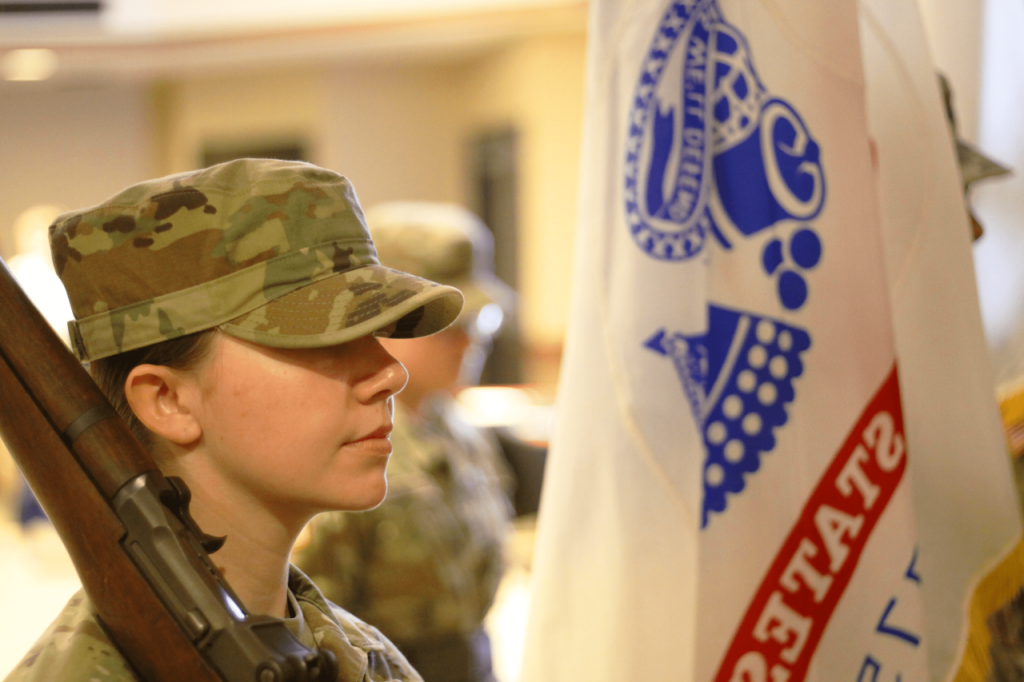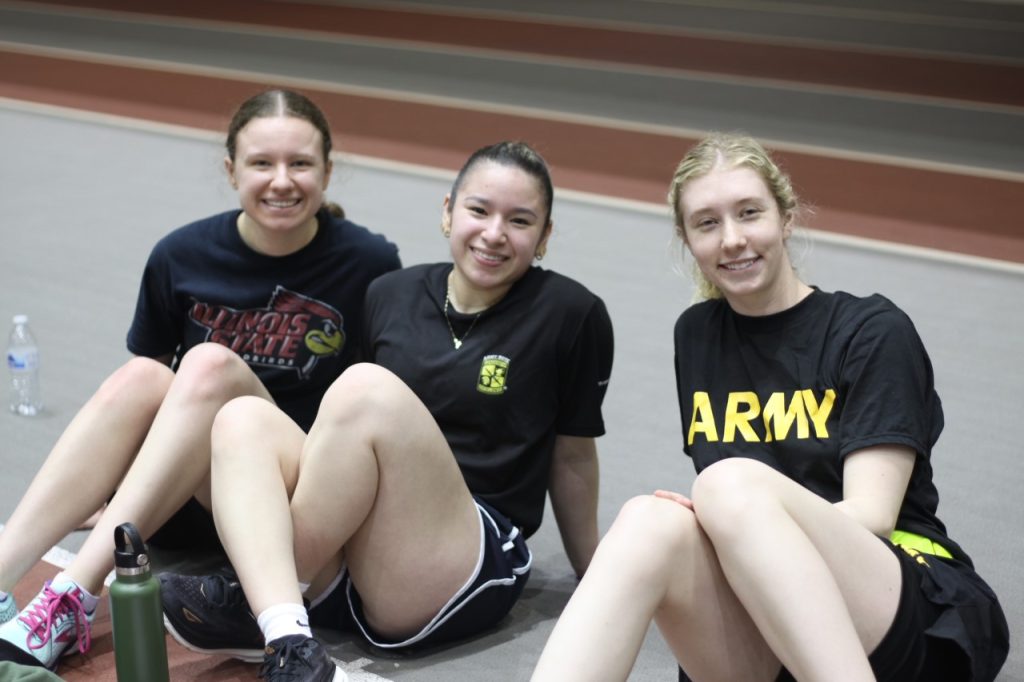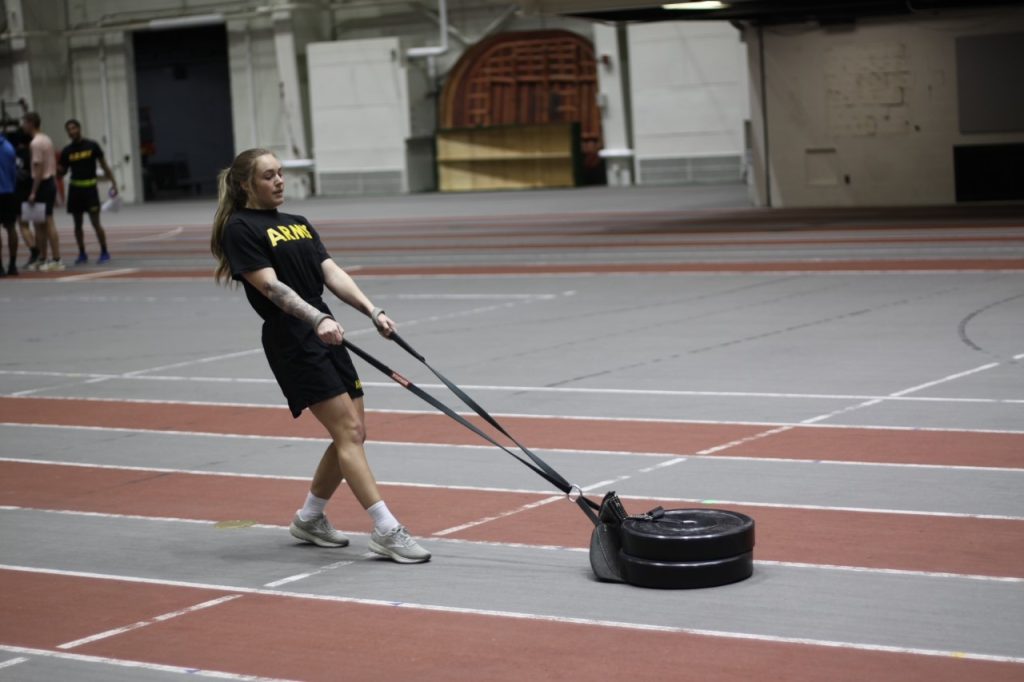Recent changes to U.S. Army protocol are providing female cadets across the country with more opportunities, including those in Illinois State University’s Redbird Battalion. At the end of January 2016, the Army officially lifted the ban on women serving in the Infantry and Armor branches. In June 2022, the Army integrated female Infantry and Armor soldiers into its final nine Brigade Combat Teams, fulfilling a requirement that there must be at least two female leaders in each company with junior enlisted female officers.
Lt. Col. Kraig Kline, chair of the Department of Military Science, provided additional context about the change.
“The Army categorizes branches into four divisions, which are the Operations Division, Force Sustainment Division, Health Services, and Operations Support Division,” Kline said. “Generally, our female officers accessed into the Force Sustainment Division, Health Services Division, or Operations Support Division.
“Branches in the Force Sustainment Division, Health Services Division, or Operations Support Division include Adjutant General, Transportation, Quartermaster, Nurses, Ordnance, Military Intelligence, or Signal. A much smaller portion of our Female Officers accessed into the Operation Division, which includes Engineers, Military Police, Chemical, or Field Artillery.”
Kline added that until this year, the Army had not had a female officer access into Armor, Infantry, or Explosive Ordnance Disposal, which aligns with the Ordnance Branch.
While a wage gap is prevalent in many other careers and industries, there is no pay disparity in the Army.
“Pay is determined by rank and time in service,” Kline said.
Amanda Valencia, a senior in criminal justice sciences, said that the elimination of the ban impacted her decision to serve.
“I enlisted as a 12B combat engineer, which is a combat arms job, before contracting with ROTC,” Valencia said. “I have always wanted to be combat arms, on the ground, where the action is.”
Valencia will be commissioned in Friday’s commissioning ceremony, which takes place prior to this weekend’s commencement ceremonies.
“I will commission as an infantry officer, so the opportunity to serve in that position would not even be open to be if the ban was still in place,” she said.
Tiffany Maravilla, a senior nursing major, will be commissioned as a nurse into the Army this Friday.
“Although I am not serving in a combat arms branch, I can see how this could dissuade women from wanting to join the Army,” she said. “This ban really limited the choices that women could pursue in their Army careers.”
Gretchen Cox, a senior majoring in general biology, will be commissioned at Friday’s ceremony. The lifting of the ban became more pertinent as her college career progressed.
“I realized that I did not want to go on to medical school or become a physician’s assistant,” Cox said. “As I looked at my opportunities in the Army, I became very interested in Field Artillery, a combat arms branch. If the ban had still been in place, I would have had to find a different branch to commission into, and I am not sure that I would have been as excited about any other.”
Erica Milan, a senior majoring in communication–organizational leadership, will also be commissioned at Friday’s ceremony. She said that she wanted to seek excitement and purpose in her future career.
“Explosive ordnance disposal (EOD) can provide me the purpose that I was seeking,” Milan said. “I’m grateful for the opportunity I have as a female to serve in a combat arms branch. I hope to learn something new every day and become diligent in my career field.”
Senior Tessah Downs, a therapeutic recreation student, will commission as an Armor officer on active duty in September.
“Having the opportunity to serve as Illinois State University’s first female Armor officer is a great honor, as I know it was not always an option for women before me,” Downs said. “With the ban being lifted, I can pursue a career path in the Army that is not limited to only men.”
“I hope one day I can positively influence more females to join the military and pave the way just like the many female leaders I’ve looked up to,” Milan said. “I would not be here without the influence and help of the female leaders in the Army.”
“Since the ban has been lifted, quality female service members have proved to the country and the Army that it can be done,” Valencia said.
Check out Illinois State’s ROTC program to see if it’s the right path for you.



